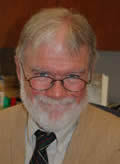
Ongoing scandals in the Catholic Church, along with noises recently being made by several presidential candidates and their supporters, bring to mind George Orwell’s grumpy observation that “as with the Christian religion, the worst advertisement for socialism is its adherents.” Orwell had little love for “the Christian religion” to begin with, but even conventional Catholic churchgoers like me can appreciate his ridicule as we feel its sting. We adherents of the Christian religion tend not to practice what we preach, let alone to practice what is preached to us.
Christians wouldn’t — and couldn’t — be Christians if we were not, first and foremost, sinners. Flannery O’Connor surely had something like this in mind when she wrote once to a friend, “The operation of the Church is entirely set up for the sake of the sinner, which creates much misunderstanding among the smug.” Nevertheless, there is, for most of us, quite a distance between the self-abandoning love we remember and revere at Mass and the peevish self-seeking that permeates what we’re up to the rest of the time. If that distance can annoy a seasoned agnostic like Orwell, it should downright terrify us.
Another of Orwell’s observations applies here. “To see what is in front of one’s nose needs a constant struggle,” he once wrote. A crucial means of shrinking that ugly distance between the fathomless love we profess and the nonchalant ruthlessness we perpetrate is exactly there, right under one’s nose: We can pray.
Well, yes, obviously we can pray, and Notre Dame is a place where prayer is obvious. Daily (and nightly) Masses are celebrated in all the residence halls, elaborate and beautiful liturgies are held in the Basilica of the Sacred Heart, rosaries are said daily in the Grotto, and at nearly every public gathering — including football and basketball games — the Mother of God is invoked in song. Public prayer, to borrow a disagreeable term from the lexicon of public relations, is intrinsic to Notre Dame’s “brand.”
But every bit as indispensable to what Orwell calls “the Christian religion” is private prayer, inconspicuous prayer, silent prayer, the sort of prayer to which each and every one of us has round-the-clock and universal access, and it’s odd that even here at Notre Dame, we hear so little about it these days.
When Paul urged the Thessalonians to “pray without ceasing,” it was much more than a flourish of metaphorical hyperbole directed at a few hundred beleaguered Macedonian believers a couple of millennia ago. He was talking to 21st century believers, too, about something anyone — no matter how lazy, distracted, hypocritical, selfish, cowardly and dislikeable — is fully capable of doing.
Even when I am engaged in the dullest work, unable to escape the most uninteresting conversation, sitting through the most vacuous lecture (or homily), trapped in the most pointless meeting, I could also be praying, addressing myself, no matter how halfheartedly, to God, keeping in mind, no matter how obscurely, his presence.
And if I could remember to take Paul at his word, if I could remember simply to keep company with God, I might just be embarrassed enough to become slightly less lazy, distracted, hypocritical, selfish and cowardly — to become, in fact, a better advertisement for the Christian religion, to become the sort of believer even a skeptic like George Orwell could stand.
Michael Garvey is Notre Dame’s assistant director of public information and communication. Email him at garvey.2@nd.edu.